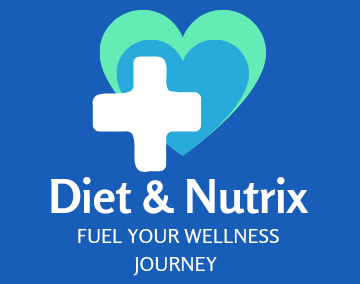The Ultimate Guide to Managing Gastrointestinal Issues with a Healthy Diet
Introduction
Gastrointestinal issues can be uncomfortable and disruptive to daily life. From bloating and gas to more serious conditions like Irritable Bowel Syndrome (IBS) and Crohn’s disease, these problems affect many people. However, the right diet can play a crucial role in managing and even alleviating these issues. In this blog, we’ll explore common gastrointestinal problems and dietary choices that can help improve your digestive health.
Understanding Gastrointestinal Issues
Gastrointestinal (GI) issues refer to any problem that affects the digestive tract, which includes the esophagus, stomach, intestines, and other organs involved in digestion. Some common GI issues include:
- Bloating
- Gas
- Constipation
- Diarrhea
- Acid reflux
- IBS (Irritable Bowel Syndrome)
- Inflammatory bowel diseases like Crohn’s and ulcerative colitis
These problems can arise due to various reasons such as diet, stress, infections, and chronic conditions.
The Importance of Diet in Managing GI Issues
Diet plays a significant role in managing gastrointestinal issues. What you eat can either soothe your digestive system or irritate it further. Therefore, making mindful dietary choices is essential for maintaining digestive health.
Foods That Help with Gastrointestinal Issues

High-Fiber Foods
Firstly, incorporating high-fiber foods into your diet can promote healthy digestion. Fiber adds bulk to the stool and helps it pass more easily through the intestines. Foods rich in fiber include:
- Whole grains like oats and brown rice
- Fruits such as apples, bananas, and berries
- Vegetables like broccoli, carrots, and spinach
- Legumes including beans, lentils, and chickpeas
Probiotic-Rich Foods
Moreover, probiotics are beneficial bacteria that support gut health. They can help balance the gut microbiome and improve digestion. Some probiotic-rich foods are:
- Yogurt with live cultures
- Kefir
- Sauerkraut
- Miso
Low-FODMAP Foods
For those with IBS, a low-FODMAP diet can be very effective. FODMAPs are certain carbohydrates that can cause gas and bloating. Low-FODMAP foods include:
- Lactose-free dairy products
- Gluten-free grains like rice and quinoa
- Certain fruits such as strawberries, blueberries, and oranges
- Vegetables like bell peppers, carrots, and zucchini
Lean Proteins
Additionally, lean proteins are easier on the digestive system compared to fatty meats. Opt for:
- Chicken
- Turkey
- Fish
- Tofu
Hydrating Foods and Beverages
Staying hydrated is also crucial for digestion. Water helps break down food and absorb nutrients. Include hydrating foods and beverages like:
- Water
- Herbal teas
- Cucumbers
- Watermelon
Foods to Avoid with Gastrointestinal Issues
Fatty and Fried Foods
Fatty and fried foods can slow down digestion and cause discomfort. Try to limit:
- Fast food
- Fried snacks
- High-fat meats
Spicy Foods
Spicy foods can irritate the digestive tract and lead to heartburn or acid reflux. Therefore, it’s best to avoid:
- Hot peppers
- Spicy sauces
Dairy Products
For some people, dairy products can cause bloating and gas due to lactose intolerance. If you’re sensitive to lactose, avoid:
- Milk
- Cheese
- Ice cream
Carbonated Drinks
Carbonated drinks can increase gas and bloating. Instead of sodas and sparkling water, opt for still water or herbal teas.
Artificial Sweeteners
Artificial sweeteners, like those found in diet sodas and sugar-free snacks, can cause digestive upset. It’s better to use natural sweeteners like honey or maple syrup in moderation.
Transitioning to a GI-Friendly Diet
Start Slowly
When making dietary changes, start slowly to give your digestive system time to adjust. For example, gradually increase your fiber intake to avoid bloating.
Keep a Food Diary
Keeping a food diary can help you identify which foods trigger your GI symptoms. Write down what you eat and note any symptoms that occur.
Stay Consistent
Consistency is key to seeing improvements. Stick to your new diet plan and give your body time to adjust. It may take a few weeks to notice significant changes.
Consult a Healthcare Professional
Always consult with a healthcare professional before making significant dietary changes, especially if you have a chronic condition or severe symptoms.
Frequently Asked Questions about Gastrointestinal Issues and Diet
What are the symptoms of gastrointestinal issues?
Common symptoms include bloating, gas, constipation, diarrhea, stomach pain, and acid reflux. These symptoms can vary depending on the specific GI issue.
How can I improve my digestion naturally?
Improving digestion naturally involves eating a balanced diet rich in fiber, staying hydrated, exercising regularly, and managing stress.
Are there any foods that can worsen gastrointestinal issues?
Yes, foods high in fat, spicy foods, dairy products (for those with lactose intolerance), carbonated drinks, and artificial sweeteners can worsen GI issues.
Can probiotics really help with digestive problems?
Yes, probiotics can help balance the gut microbiome and improve digestion. They are particularly beneficial for those with IBS or other GI conditions.
How much fiber should I eat daily for good digestion?
It’s recommended that adults eat about 25-30 grams of fiber per day. However, increase your fiber intake gradually to avoid digestive discomfort.
Is it necessary to avoid all dairy products if I have GI issues?
Not necessarily. It depends on your individual tolerance. If you are lactose intolerant, you may need to avoid or limit dairy products, but lactose-free options are available.
- How can I prevent bloating?
To prevent bloating, eat smaller meals, avoid carbonated drinks, limit high-FODMAP foods, and chew your food thoroughly.
Conclusion
Managing gastrointestinal issues with the right diet can significantly improve your quality of life. By incorporating high-fiber foods, probiotics, lean proteins, and staying hydrated, you can support your digestive health. Additionally, avoiding trigger foods like fatty and fried items, spicy foods, and carbonated drinks can help reduce symptoms. Always remember to make changes gradually and consult with a healthcare professional for personalized advice.
For more tips and information on managing gastrointestinal issues, visit our website at www.dietandnutrix.com.
Related Post:
https://dietandnutrix.com/the-best-tips-low-cholesterol-diet/

